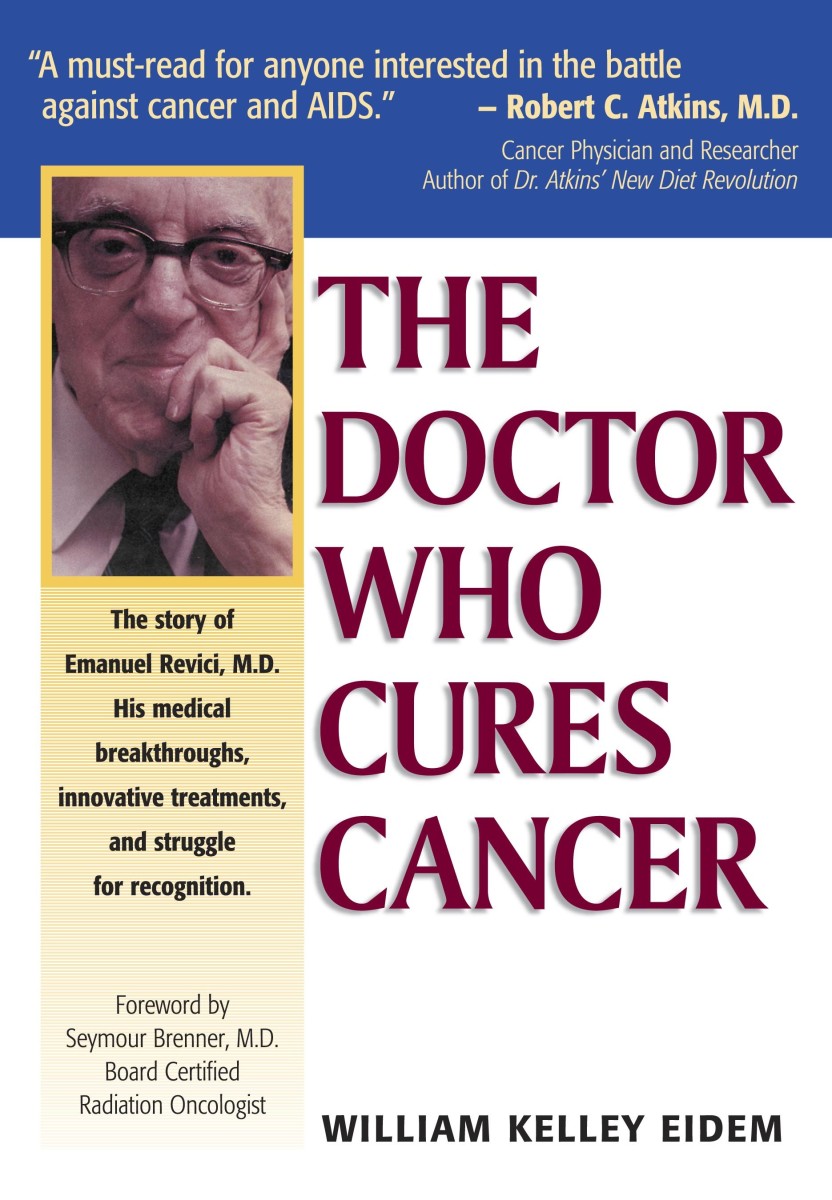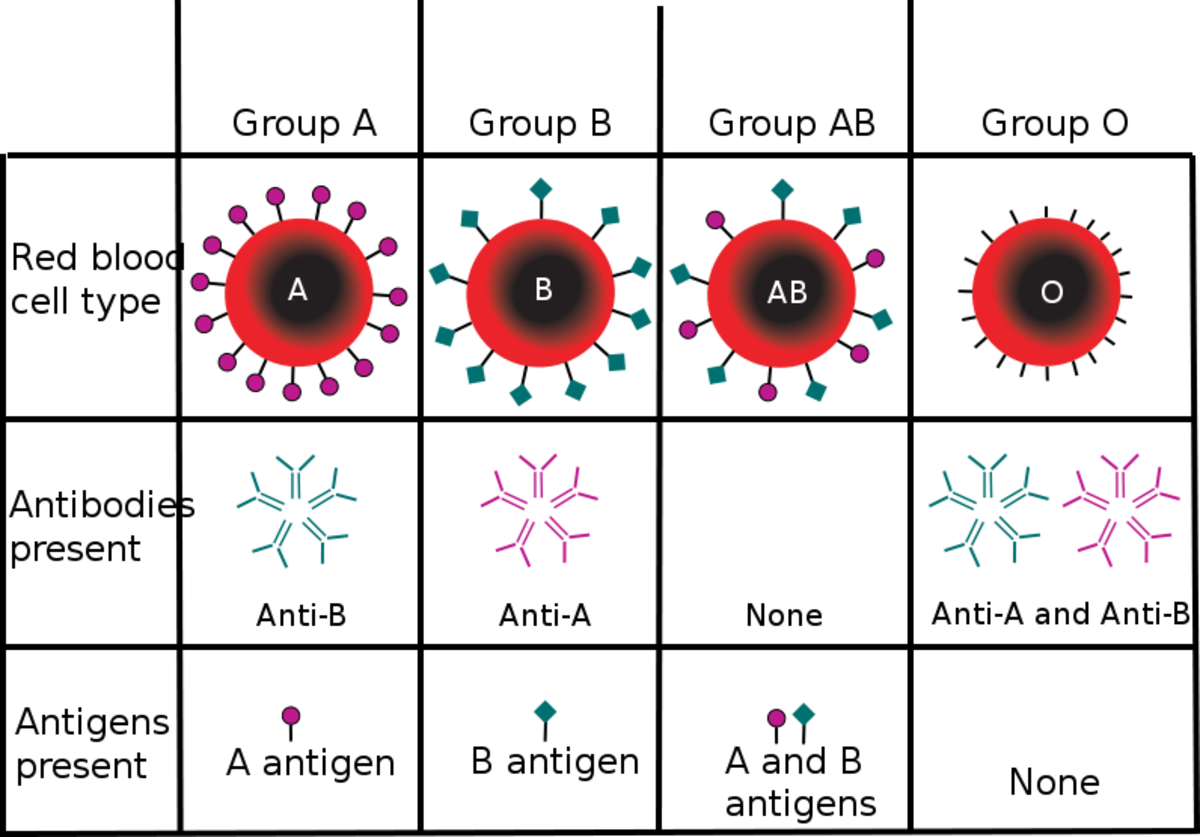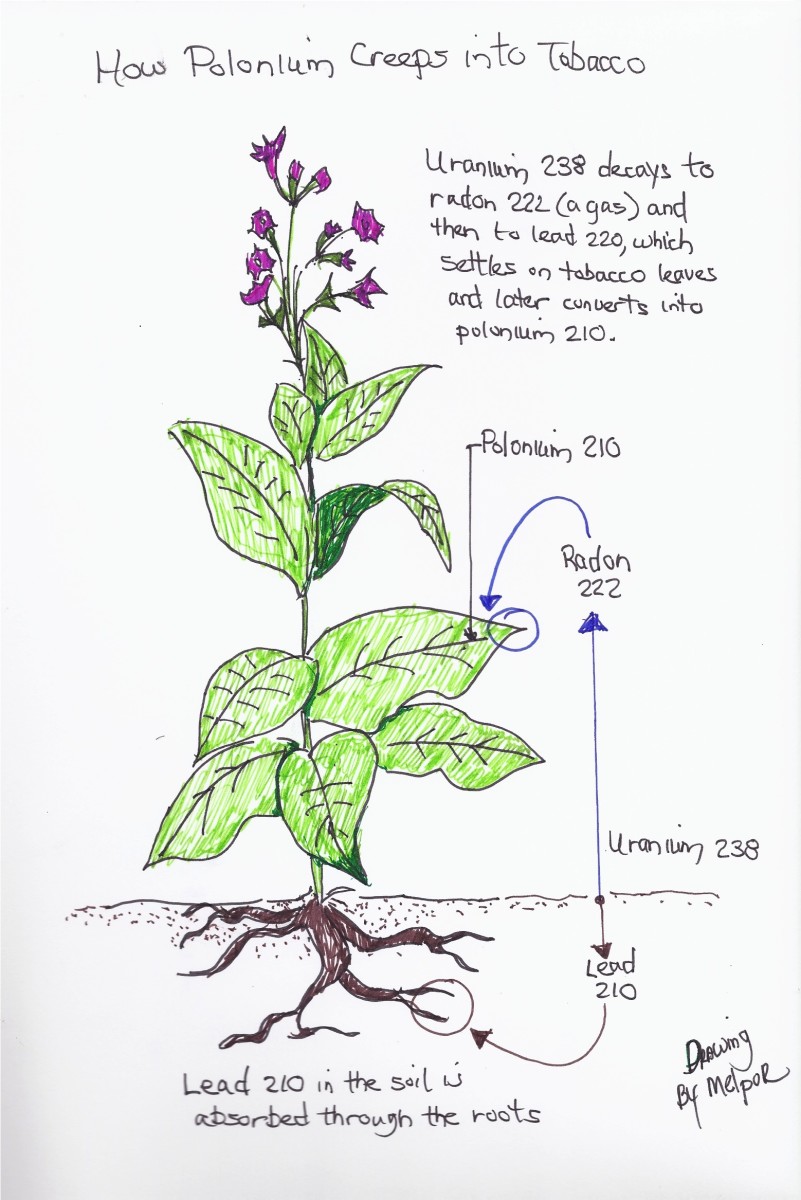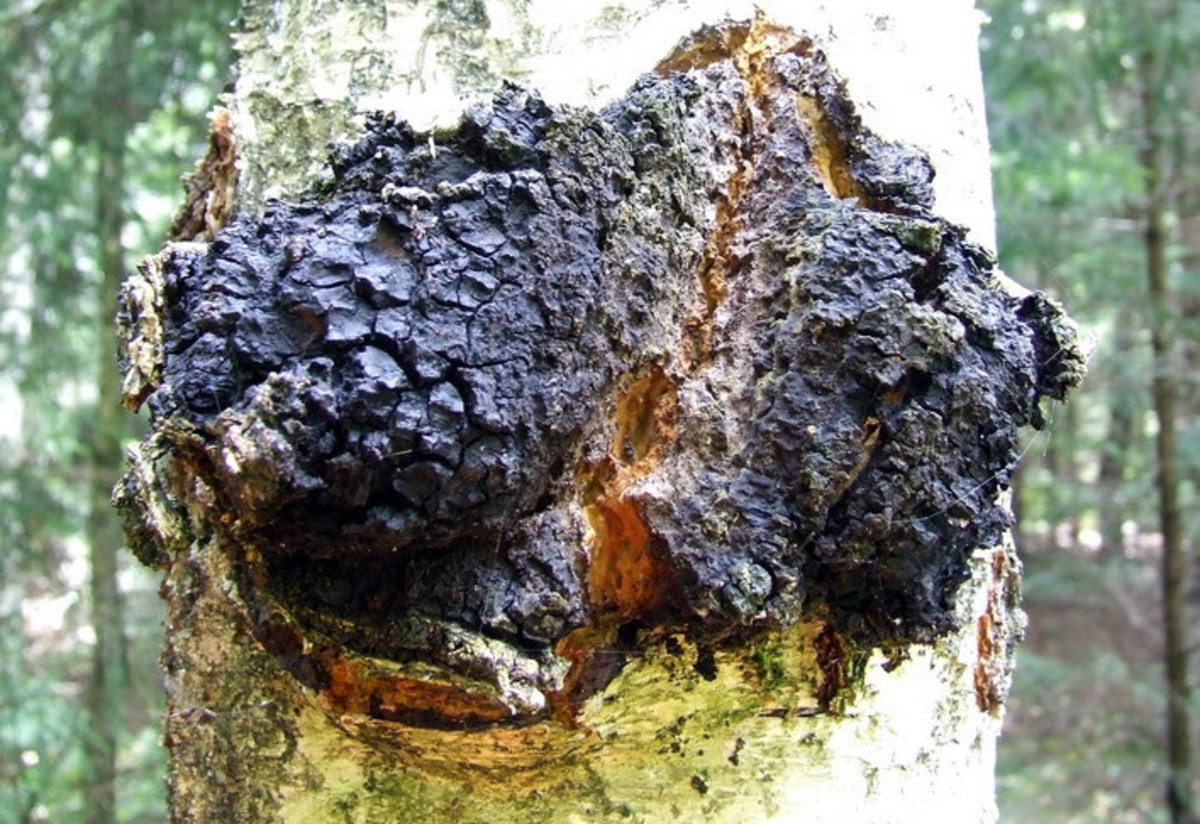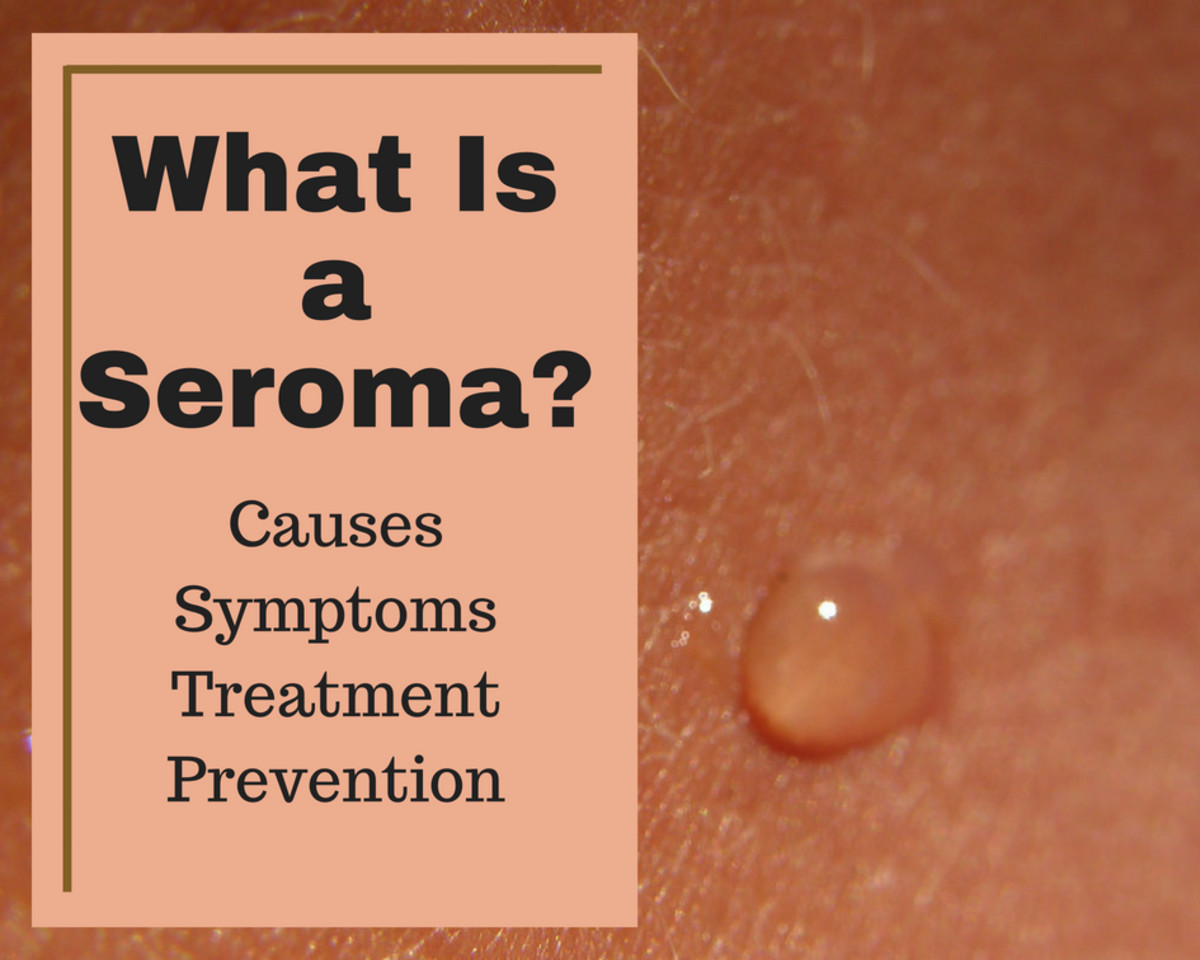How a Person without an Inherited Polyp Develops Colon Cancer
Free radicals and derivatives cause colon cancer
A person who did not inherit a mutated APC can develop colon cancer. APC (adenomatosis polyposis coli) is the gene that controls colon cancer. Sporadic or environmental factors can cause mutations in his normal APC/apc genes. [This Hub was formerly a part of “How Colon Cancer Develops from a Polyp (Benign Tumor)” that was overly long].
APC/apc indicates a gene in a chromosome; this gene constitutes two alleles. Each is contributed by each parent. They have the same function in regard to colon cancer. APC (note the capital and small letters) is the dominant allele in a pattern of inheritance called heterozygous dominant. (This is technical language in genetics and we will not pursue it here).
"In sporadic cases, mutation of one copy of the apc gene occurs in an intestine cell. The cell carrying this mutation partially escapes cell cycle control and divides to form a polyp (a benign tumor)." (Cummings, M. Human Heredity, Principles and Issues. 2009:294).
In the case of sporadic colon cancer: When p53 gene is normal it stops the cell cycle of the cell that sustained mutations in two alleles of its gene adenomatosis polyposis coli (APC). It stops it in two checkpoints in the interphase: one at transition between G1 to S and another at transition between G2 and M or mitosis. If the APC-mutated cell were not stopped it would undergo mitosis and produce two sister cells that are polyps, according to Cummings (Cummings, M. Human Heredity, Principles and Issues. 2009:288). If one of these polyps, now part of the sibling, sustained 5 to 7 more mutations, it will graduate into colon cancer. This time, p53 gene sustained mutations in both alleles so it fails to stop the cell with mutations in both alleles of genes APC/apc from producing polyps. Now, this polyp turns into colon cancer
Prevent colon cancer
There is a good chance of preventing colon cancer in person even as he is carrying a mutated APC gene. Five to seven mutations more in its genes transform a polyp into adenoma then cancer. Fewer than five mutations does not initiate cancer. In other forms of cancer, like the heritable breast cancer (BRCA1), mutation of the formerly normal allele, in addition to the inherited mutation in one allele of a gene, initiates cancer. (As if that were any consolation).
A person who inherited a mutation in APC gene must prevent mutation in k-ras gene. If unsuccessful, he must prevent mutation in DCC gene. If unsuccessful, he must prevent mutation in DC4 gene. He must do the same on DPCA and V18-1. It is like stopping burglars in 5 to 7 fences around your house before they can reach your house.
A person who did not inherit a mutation in APC gene (with normal APC genes) must install a prevention program at once. Don't wait for 40 or 50 years to pass. The culprits in colon cancer are free radicals or X-rays or both whether you have inherited a mutated APC or normal APC. A person who had started his own metabolism (production of energy from a molecule of glucose) had started production of free radicals. A newborn can be attacked by free radicals because s/he was not protected by fat-based antioxidants (like vitamin E) when still a fetus. Vitamin E cannot pass through the placenta. That is why a newborn is given vitamin E immediately. This explains why a child can develop cancer or heart disease even at an early age. (Vitamin C is a water-based antioxidant. Vitamin E protects fatty parts of the cell like the cell membrane and membranes of the mitochondria, the energy factory).
When 5 to 7 mutations in genes had occurred in the same polyp, the p53 gene (switch) might be too weak to stop the cascade toward development of colon cancer. Remember, p53 gene had its hands full blocking mutations starting with apc or k-ras.
Colonoscopy detects a polyp that is already an advanced adenoma (mutations up to V18-1) or cancer (mutations past p53 gene). This is the one that can be removed by surgery. But there are thousands of polyps in the intestine whether the cause of mutation in APC is inherited or free radicals or X-rays. And removal of polyps is the same as removal of the large intestine altogether. If colon cancer had already metastasized (mutations past p53 gene) it might have established colonies in other parts of the body in addition to the large intestine.
How would you know if you have FAP (familial adenomatous polyp)?
Base it on family history: a relative had FAP; a kin died of colon cancer; one of your parents is a survivor of colon cancer. Or you may consult a geneticist, an expert in inheritance. A Bioarray kit detects mutation but I am not sure if it can specify a mutated APC gene. Let us review a hierarchy of terms indicating different conditions, like: polyp (a cell with a mutated APC gene); adenoma (polyp with fingerlike projections, in stages of development from mutation of one allele of k-ras to mutation of two alleles of p53 gene); tumor (adenomas are multiplying but are confined within the matrix); cancer (tumor breaches the matrix, invades neighboring cells, goes to the lymph fluid and blood).
If you did not inherit a mutated APC how would you know that your normal APCs were mutated by sporadic or environmental factors? Already, there are tests for mutated inherited breast cancer and ovarian cancer, BRCA1 and BRCA2 respectively. The medical literature I have come across has not shown a test for mutated APC, or k-ras, or DCC, or DCA, or DPCA, or V18-1.
Can colonoscopy do it?
Dr. Mehmet Oz, MD had his colonoscopy when he was 50 years old; a premalignant polyp was found in his intestines. The attending physician, Dr. Jon LaPook, a gastroentorologist and friend, "coolly carved out the polyp and forwarded the specimen to pathology for rapid diagnosis.
"...Yes, my polyp was premalignant, the kind from which cancer arises to afflict 5% of Americans. The odds are higher if you have a relative with this cancer, if you are obese or if you smoke." (OZ, M. MD. "What I Learned From My Cancer Scare." Time. June 27,2001).
In the terminology of this Hub, "premalignant polyp" most likely means tumor.
The stages of the progress of colon cancer in conventional literature looks like the polyps had already turned malignant or metastatic. For example;
Stage I -- "spreads into mucous layer of colon." Stage II -- "spreads to outer colon layers." Stage III -- "in colon muscle; lymph involvement." Stage IV -- "In one or more distant organs." ("Stages of Sick. Different cancers progress in different ways -- and so do treatments." Time. June 27,2011:40).
"Spread" indicates that a tumor had already breached the matrix that confines it. Otherwise, the term should be "nudges," meaning the tumor occupies space meant for other normal cells. More mutations occur in each generation of divisions. This is the reason why the gaps between phases of cancer becomes shorter and shorter. The gap between Stage I and Stage II is the longest; the gap between Stage III and Stage IV is the shortest. That is, if the growth is not halted or regressed or if the cancer is not cured..
A colonoscopy test may find a "premalignant polyp" but it misses adenomas in different stages of development, having sustained less than five mutations in genes. For a person with FAP or whose APC alleles were mutated by free radicals, an adenoma has gone past the p53 gene resulting in multiplication of adenomas. This state is not classified under Stage I. Adenomas are still confined by the cell matrix; no spreading yet.
"The best thing about colonoscopy is that the test itself can be curative if the polyp is successfully removed before cancer pushes into the colon tissue. But if the tumor has spread into the wall of the intestine, my 10-year survival odds are about 72%. If any lymph node is involved, I am in the 50-50 club, and if the tumor has spread to another organ, I have less than a 5% chance of being alive in 10 years" (Oz, M.MD, same source as above).
Dr. Oz is using "cancer" synonymously with "tumor." In our terminology, tumor, like myoma, is confined to its place of origin. Cancer escapes from its origin, confinement and invades a neighboring cell. We know that Dr. Oz is not using precise medical terms; he is using layman's language. In the quote from Dr. Oz, the term "cancer" in the first sentence should be "tumor" in our terminology. That is, the lump of cells with uncontrolled growth is about to breach the matrix. The term "tumor" in the second and third sentences should be "cancer."
One benefit from colonoscopy is that it catches the polyp that had progressed into tumor out of thousands of polyps in the intestine. Several adenomas could be at different stages of development.
Tumor and cancer start the same way. Both start and develop in one mitotic or somatic cell only. In layman's language, tumor is benign; cancer is malignant. They differ in that tumor does not escape the cell matrix and invade neighboring cells while cancer breaks down the matrix, escapes and invades and infects its neighbors or spreads to the lymph system and blood then forms colonies in other parts of the body. Myoma (tumor) can grow to the size of a head of a person or a professional basketball and still stay in its place of origin, nudging normal cells, depriving them of their space. I saw myoma, a tumor in the ovary or uterus, the size of a basketball excised from an old woman.
Alternative medicine
How did the wife of Dr. Oz react? She might have thought of alternative medicine, judging from what Dr. Oz narrated.
"I called my wife Liza from LaPook's office. She was very calm when I told her the news, but by the time I got home that evening, she already had a shopping cart's worth of herbs and polyp shrinking potions ready for me. We all cope in different ways" (OZ, M. MD. "What I Learned From My Cancer Scare." Time. June 27,2001).
Do the wife's instinct, or loving care, or good sense have any scientific basis?
They do. In my book published in the Philippines in 2008, I wrote:
"Recently, scientists at the University of the Philippines Manila found that 'noni juice has cytotoxic effects both on normal lymphocytes, mouse myeloma and human colon cancer cell lines that were used' (De Guzman, T; L. R. Embuscado, B. Monte, Valdez, Ma. T. 2004. A Preliminary Study on the In vitro Anti-Cancer Potential of the Commercial Preparation and Decoction of Morinda citrifolia.' The UP Manila Journal, vol. 9, pages 42-53). Tested were commercial capsule, tea, and fresh fruits. All three extracts at 5% concentration down to 2.5% were effective on normal lymphocytes; all three at 5% down to 1.25% were effective on colon cancer; capsule extract at 5% down to 2.5% was effective on mouse myeloma cells. Lymphocyte is an antibody, a defense against foreign body invasion; myeloma is malignant tumor of bone marrow. In vitro means test tube. 'The results showed that particular concentration of noni juice extracts could kill cancer cells in vitro' the scientists concluded." (Fontanilla, C. D. Benefits Derived from PhilNONI. 2008:27).
Recurrence or new tumor?
Dr. Oz said he partially botched his first colonoscopy because he was a bad patient, something he admonished about to his patients when he himself gave instructions on a scheduled colonoscopy. He conducts colonoscopy but this time around it was conducted on him.
"I knew full well that I wasn't supposed to eat for at least 36 hours leading up to the test, but I nonetheless sneaked a few mouthfuls of lunch just 18 hours before," he narrated. Dr. LaPook "insisted on repeating the colonoscopy to look for potentially missed polyps" due to obstruction by the lentils he ate. At the farthest end of Dr. Oz's colon Dr. :LaPook found one more polyp.
"This second polyp, which worried me more than the first, turned out to be hyperplastic and not precancerous. This was good news, of course, but the fact that I had had a polyp at all did mean I would have to be vigilant for the rest of my life...." Dr. Oz wrote.
That means Dr. Oz has FAP or he inherited a mutation in his APC gene and had passed it on to his children.
"The tougher part was telling my children -- not so much that I was sick, because I wasn't, at least not yet -- but that they were now at high risk for polyps and would need to start getting screened when they are at least 10 years younger than I was...." (Oz., H.MD. same source as above).
There is a probability that during colonoscopy a premalignant tumor is completely excised out. This may happen in Stage I of colon cancer that results in 93% outcome. There is a probability that removal of tumor is not successful and now it developed into cancer. There is also a probability that a new adenoma had developed into tumor. Treatment for colon cancer that had progressed to Stage II consists of surgery, chemotherapy, "with possibility of colostomy" that may give an outcome of 80%. There is also a probability that chemotherapy caught the adenomas in different stages of mutations in their genes. In any case, a recurrence or a new tumor is absent. Colostomy is "a surgical operation that creates an artificial anus through an opening made in the abdomen from the colon" (Microsoft Encarta 2009).
Worthy of looking into is how chemotherapy works. A chemotherapy drug like Adriamycin (doxorubicin) works "by releasing a cascade of free radicals in the nucleus of cancer cells...." (Sharma, H., MD. Freedom from Disease, How to Control Free Radicals, a Major Cause of Aging and Disease. 1993:90). Free radicals destroy cancer cells as well as healthy cells in the vicinity of the target. Chemo kills red blood cells, white blood cells and platelets. That is why chemotherapy should be given in correct dosage and pace to enable these blood cells to replace those killed. A patient having chemo must have a high blood count. Over dose of chemotherapy results in killed target cancer, weak patient and new cancer. Sometimes a suppressant is also administered to mollify free radicals. Conventional medicine would not say that Adriamycin produced free radicals.
Prevention gives a brighter prospect than colonoscopy
I have Hubs "Links of Heritable Breast Cancer (BRCA1) and Ovarian Cancer (BRCA2) are Found: How to Counter Causes," and "Free Radicals (Unpaired Electrons) in Alternative Medicine" that can give tips on how to counter free radicals.
The enzyme antioxidants of the body (superoxide dismutase, glutathione peroxidase, glutathione reductase, catalase) should be enhanced; supplement antioxidants (vegetables, vitamins) should be taken.
Move old feces out
Some feces may stay long in the large intestine, 3 to 4 days. These are prone to attack by bacteria that may enhance the environment for sporadic or environmental causes (free radicals) of mutation in polyps. These overstaying feces must be moved out.
Macrophages, components of the immune system, shoot down infections caused by bacteria or virus. Macrophages uses the free radical nitric oxide mediated by the inducible nitric oxidase, (iNOS) an enzyme. iNOS free radicals are used like bullets to hit infected cells but may hit polyps and induce them to mutate. iNOS may start sporadic colon cancer in a fellow who did not inherit polyps.
[I have a long Hub on how macrophages induce rheumatic heart. Macrophages uses iNOS mediated nitric oxide to hit the bacteria, Streptococcus pyogenes, that attacks heart muscles and valves inducing scars in valves that graduate into stenosis. Stenosis of the mitral valve, for example, causes this valve to close improperly that results in backflow of blood.]
Thorough defecation can be induced by eating fruit of guyabano (sour sop). Guyabano works differently from a purgative that induces soft bowels. I have been eating guyabano for the same purpose.
Guyabano is also an antioxidant and anti-cancer.


